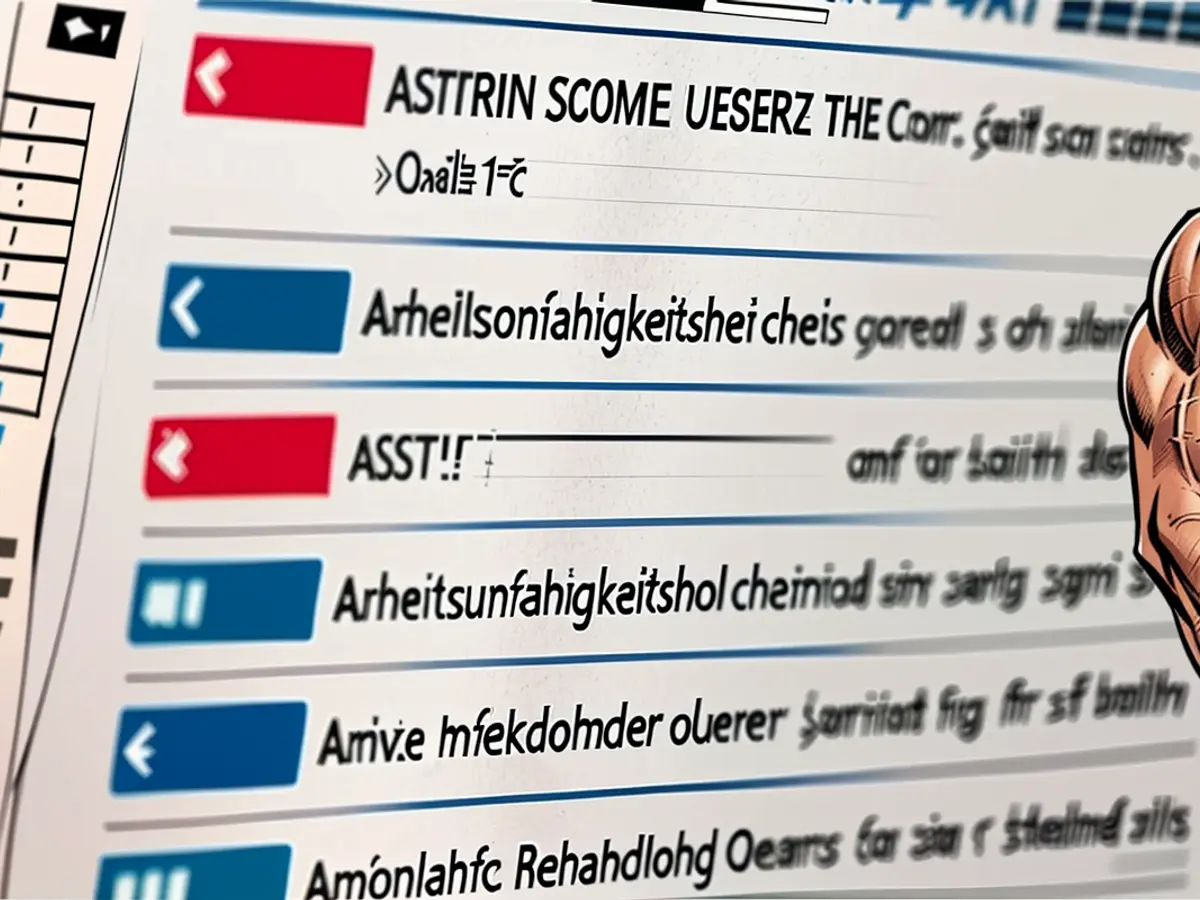- Wissing, Hoch and doctors on the possibilities of digital medicine
Rhineland-Palatinate's Health Minister, Clemens Hoch, and the Deputy Chairman of the Association of Statutory Health Insurance Physicians (KV), Andreas Bartels, find the introduction of the electronic patient record very helpful. "I believe that the electronic patient record (ePA) must be introduced, in its purest form," said the SPD politician and minister in an interview with the German Press Agency in Mainz. Even Bartels believes that the ePA should contain all information about the patient, but participation should be voluntary. The introduction is planned for mid-2025.
Digital Minister Wissing sees great value in the use of AI
Artificial Intelligence (AI) can, in the opinion of Digital Minister Volker Wissing, create freedoms for doctors and patients in medicine. A quick appointment and an accurate, quick diagnosis are possible with the help of AI, said the FDP politician in an interview with the German Press Agency in Mainz. "That's what patients want. For a society that is aging, like ours, it is particularly valuable."
In addition to the ePA, Hoch and Bartels also see many other opportunities in the digitization of medicine, such as telemedical offers. In the USA, people experiencing a panic attack can already speak to an Artificial Intelligence (AI), "and it actually helps them calm down," Bartels reported. However, the doctor also pointed out: "Digitization does not solve our structural problems."
""A little bit of patient record" won't do"
"The electronic patient record would help the system enormously," said Hoch. He cited patients with recurring complaints such as colic, where different doctors repeatedly perform the same examinations because they don't know the results of previous ones.
The minister is clear about the ePA: "Either I say I don't want an electronic patient record. Or I decide to have it completely," the minister emphasized. ""A little bit of patient record" won't do."
Bartels added that doctors must be clear that important information is not missing when the ePA is opened, as this could potentially cause serious complications in medication.
He also understands that, for example, information about abortions could be a problem for patients traveling to countries where it is banned and their ePA is opened.
All medications and pre-existing conditions are visible at a glance
The anesthetist, however, praised the benefits of the electronic patient record, as he experienced it in Denmark: "You're in the ambulance, the patient is unconscious. You enter the insurance number and you see all the medications and all the pre-existing conditions at a glance."
"And that's information that's really extremely important at that moment." The record is also very helpful, for example, with older people who don't know exactly which tablets they've taken, said Bartels.
In Austria, where the ePA has been available for years, more than 90 percent of patients now participate voluntarily, said Bartels. In Germany, a survey found that a large majority of the population accepts the ePA. In a survey commissioned by the digital association Bitkom, 71 percent of respondents said they already use or will use the ePA in the future.
The tele-doctor is also increasingly accepted, reported Bartels. "Especially the younger generation has no problem with it." Many no longer sit in a practice and wait for an hour and a half or two hours. "They book an appointment and expect it to be reasonably reliable."
For many elderly patients, direct contact with the doctor is more important, Bartels reported. "This closeness to the patient is something the older generation still needs much more than our younger generation."
According to Health Minister Hoch, telemedicine enables "medical care close to home using state-of-the-art technology."
A current, very successful example is the Telenotarzt pilot project of his cabinet colleague, Interior Minister Michael Ebling (also SPD). With the help of Telenotarzt, it will soon be possible to have remote verbal consultation with an emergency doctor by a paramedic. The goal is to improve quality by bridging times until a doctor arrives on-site. With the nationwide rollout, Rhineland-Palatinate aims to be a pioneer.
The following is a suggestion made by Bartels for the use of AI in medicine: "People experiencing a panic attack in the USA can already speak to an Artificial Intelligence, and it actually helps them calm down."
In light of the benefits of the electronic patient record (ePA), Hoch expressed concern about the potential issue of missing important information: "Doctors must be clear that important information is not missing when the ePA is opened, as this could potentially cause serious complications in medication."








